Contributors
Bonnie Brown: Q&A with Ole Miss Retiree with Paul Hale
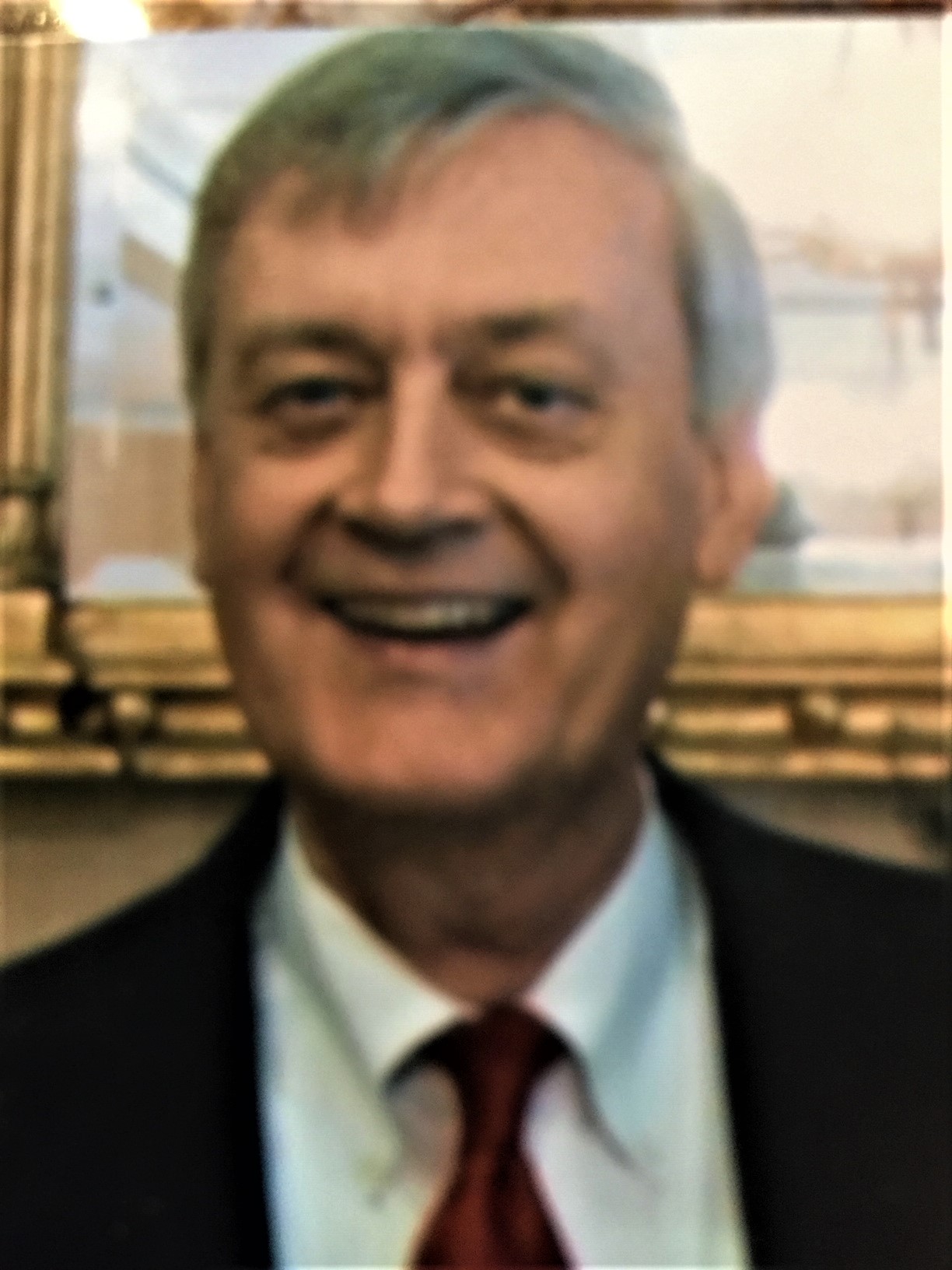
The latest interview in the Ole Miss Retirees features is Paul Hale. The organization’s mission is to enable all of the university’s faculty and staff retirees to maintain and promote a close association with the university. It is the goal of the Ole Miss Faculty/Staff Retirees Association to maintain communication by providing opportunities to attend and participate in events and presentations.
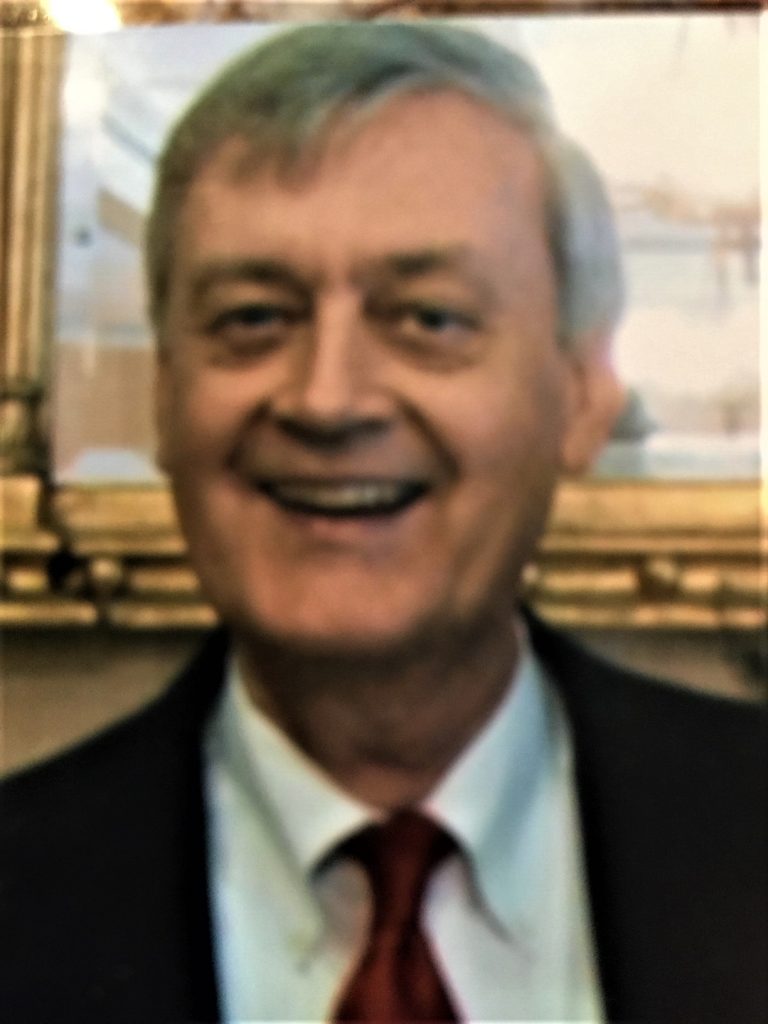
Paul Hale had a significant impact on Ole Miss facilities during his career. He had to maintain old buildings and then had the responsibility of new construction too. Thankfully, he was very skilled, experienced, and committed to the many tasks.
Brown: Where did you grow up? What is special about the place you grew up?
Hale: I’m a city boy. I grew up in downtown Mantachie, Mississippi which is about 15 miles from Tupelo. When I was eleven, we moved to the suburbs (Tupelo). When I was growing up, Mantachie had one crossroad. McFerrin’s General Store was on one corner, my uncle Ray’s service station on another, and great-uncle Jack McFerrin’s house on another. There was no industry unless you count McFerrrin’s cotton gin.
Brown: Please talk about your childhood.
Hale: Everyone in Mantachie—which was a lot like Mayberry—was a relative. I knew all my grandparents and three of my great grandparents. I was the first grandchild on both sides of my family, so I was probably not worth killing.
My parents, Paul and Gladys McFerrin Hale, owned and operated the shoe store within Black’s Department Store in Tupelo. My paternal grandparents were Everett and Mae Weaver Hale. For a time, Mae taught school. Together, they owned and operated a restaurant on the square in Fulton, MS. My maternal grandparents were John and Eula Mae Morris McFerrin. He farmed in Itawamba County, MS.
Brown: What if any personality traits do you share with your parents/grandparents?
Hale: My father and I both married pretty women.
Brown: What’s the most memorable/important lesson your parents instilled in you?
Hale: Love God and others and keep His commandments was the most important lesson.
Brown: What is your most treasured memory from childhood?
Hale: Sometimes my Grandmother McFerrin would let me go look in the hen nests for fresh eggs. I could take two eggs to McFerrin’s General Store (the heart of the business district) and exchange them for an ice cream cone. If I could get Uncle Key to dip my ice cream, he would give me a double-headed cone and put two dips on each side and one in the middle. Since it was usually around 100 degrees, there was no way you could eat it before it melted.
Brown: Where did you go to school?
Hale: I started in the first primer (sort of kindergarten) at Mantachie Elementary school and continued there through the sixth grade. I went to junior high and high school at Tupelo.
Brown: What were you really into when you were a kid?
Hale: There were fewer kids my age around, so it was hard to play any sports, and I liked to read. I read everything: comics, Melville, Dumas, Homer, Hardy Boys, Cooper, Agatha Christie, Tolstoy, Faulkner, Michener. Anything they had in the library, plus cereal boxes, etc.
Brown: What was your first job, perhaps as a teen? What were your responsibilities and pay?
Hale: My first job was mowing lawns. Since I didn’t charge much, I had lots of yards to mow. I also wore out a lawn mower every summer. I probably came out in the hole for my efforts. Not a good business plan!
Brown: How did you respond when asked as a child what you wanted to be when you grew up?
Hale: I didn’t know what I wanted to be as a child. I can remember telling people I wanted to be a middle manager in a large corporation. That was a foolish answer for me to say. I certainly didn’t want to be that, but it would stop the questioning. I later thought I would like to be an architect, but when I found out that Ole Miss did not have an architecture school, that ended that. Since I came through about the time of Sputnik, everybody who could walk and chew gum at the same time was encouraged to be an engineer, so I said I would do that.
Brown: Talk about your high school experience.
Hale: My high school experience was enjoyable. I was decent in math and science, and I had already read everything we studied in English. I was painfully skinny in high school and shy. I tried everything to gain weight. There was a diet supplement at the time called WATE-ON. It was a huge wafer of protein supplement, and you were supposed to eat two with a milkshake before each meal. I did that for three weeks and lost a pound. At cookouts, I would eat eight hamburgers. Funny, I don’t have that problem now! I loved all sports but unfortunately, I was not good at any.
Brown: Who influenced you in your early life?
Hale: My parents were my main influence. I thought they were both neat people. I can remember my mother sitting out on the front steps with me trying to teach me to read. I don’t think she thought I would ever learn. I think I was 3 at the time. When I eventually started in the first primer, I was the only kid in my class who could read. They mistakenly thought I was smart and recommended that I skip the second primer, which led to me being the youngest person in my grade—not good in junior high. Another influence was my pastor at Harrisburg Baptist Church in Tupelo, Dr. Bob Hamblin. He helped me develop in my spiritual life. I thought he was a great preacher. He later taught preaching at New Orleans Baptist Theological Seminary.
Brown: How and when did you decide about your career choice?
Hale: As I said earlier, high school counselors and others were encouraging anyone who was decent in math and science to be an engineer. We were losing the space race to Russia. I thought, chemistry is hard, and math is hard, so I’ll be a chemical engineer. In 1967, I received a B.S. in Chemical Engineering from Ole Miss.
Brown: Tell us how/when your Ole Miss “story” began? Who hired you? Talk about the interview process.
Hale: I was living in Oxford and owned a shoe store on the Square, Paul’s Shoe Box, when my mother noticed an ad in the Tupelo Journal publicizing that the University had an opening for a chemical engineer. I looked into the position. The Physical Plant Department was looking for a chemical or environmental engineer to be in charge of the water system and wastewater plant at the University. I interviewed with John White, the Physical Plant Director, the engineer’s Morris Lovelady, John Rayburn, Vernon Brown, and the University architect, Henry Mitchell. I was impressed with their professionalism and the complexity of operating what was essentially a small city, except that the University-owned, operated, and maintained all the buildings in the “city.” When I was offered the job of Environmental Engineer, I eagerly accepted. After one year in that job, I applied for and was promoted to the position of Associate Director. When Mr. White retired a year later, I moved up to Director. While at both the Physical Plant and Facilities Planning, I had the privilege of working alongside many very capable professional engineers: Reid Russell, Bill Mackenzie, Tony Wilson, Darrell Russell, Ken Bray; architects Jim Paterson and Ian Banner; administrators, Sid Shaw and Buddy Kahler, Associate Directors, respectively; Bill Anderson, Construction Manager; Jeff McManus, Director of Landscape Services; and Margaret Fields, Administrative Assistant. I was also privileged to work with a very talented group of supervisors and superintendents, skilled craftsmen, and other service units. There were over 300 employees who loved Ole Miss and felt a sense of responsibility and pride in doing his or her part to make Ole Miss successful. I am grateful that together they all made my working at Ole Miss a pleasure.
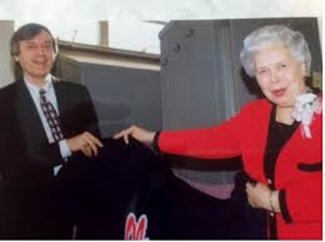
Brown: How did you come to open a shoe store? What became of the store when you accepted the job on campus?
Hale: My parents owned a shoe store and I grew up in the family business. When I accepted a job on campus, I hired a manager who eventually bought the store.
Brown: You were responsible for every building project. Please talk about these, such as the national centers that were established at Ole Miss.
Hale: As the name University implies, there is such a wide variety of projects involved in providing, maintaining, and managing facilities for a major school. One day you will be working with the world’s leading acoustic experts on a theatre design, and the next with another kind of acoustic expert to design a wind tunnel for world-class research purposes. I was very fortunate to be involved with the design of several National Centers, which set the University apart from all others in several areas: The National Center for the Technological Development of Natural Products, The National Center for Physical Acoustics, The National Food Service Management Institute and other world- class facilities like the Oxford-University Baseball Stadium/Swayze Field and the Gertrude C. Ford Center for the Performing Arts.
Brown: Tell us about the old Train Depot and your role with that project.
Hale: The old train depot, Oxford University Depot, was an interesting and challenging project. Not only did it have all the requirements and regulations of an historical restoration, but it also involved completely repurposing the facility. (We don’t have trains anymore.) It also had the challenge of having a contractor who, while competent, was completely overextended; so, we had to try to get the project completed without him going out of business.
Brown: How long did you work at Ole Miss?
Hale: I worked at Ole Miss from 1980 until retirement in 2006. The last five years were as Director of Facilities Planning.
Brown: What were your “best” and “worst” days at work and why?
Hale: One good day I remember was when I received mail from the Chancellor’s office. (Before texting, business was done through campus mail, the University’s version of “snail mail”). It was a call for grant applications from the National Science Foundation for renovation of science facilities. They asked me to take a look at it. I thought about it and completed the form. Sometime later, it came back with first-round approval. After other rounds of approval and input from the Physics Department, it turned out to be the physics building addition to Lewis Hall, a project of several million dollars, all funded by the National Science Foundation. Another good day was when Vice-president George Bush came to campus. The Secret Service came to town several days earlier to inspect and prepare. It was quite a production. They had bomb-sniffing dogs who went through the air conditioning ducts, among many other things. When they flew in the presidential podium, they forgot the bullet-proof “wings” on each side where the Vice-President could take cover in case of a sniper. The night before his speech, the Physical Plant Department (PPD) made some “wings” from steel plate and covered them with blue cloth to match the podium. The Secret Service was quite pleased. My worst days were when I had to fire someone. Fortunately, that didn’t happen very often.
Brown: What are some of the events in your life that made you who you are?
Hale: One that I really remember was in my senior year at Ole Miss. I was asked to be at a friend’s wedding. Upon arrival for the rehearsal, I spotted a girl across the room who really caught my eye. She was the younger sister of the bride. I graduated shortly after that and started my first job in Mobile that summer. My friend and his new wife were in Mobile that summer because he had a summer job with International Paper. Guess who decided to spend part of that summer with her sister? We dated almost every night that summer and by the end of summer we were engaged. We were married the next summer and 52 years later Dot is still putting up with me.

Brown: What advice would you give your 20-year-old self?
Hale: Set high goals and work toward them.
Brown: If you could master one skill you don’t have right now, what would it be?
Hale: Another skill I would like to master would be another language, maybe French. I guess I ought to master English first!
Brown: Why French?
Hale: It’s a pretty sounding language.
Brown: What’s your definition of success?
Hale: Being at peace with God and man.
Brown: What’s a story of yours that you don’t get to tell often enough?
Hale: I’m old and have told all my favorite stories so many times that no one wants to hear them again.
Brown: What are your pet peeves?
Hale: My pet peeves include the following: people who almost run me off the road while texting, standing in line for anything, and scam calls.
Brown: What do you consider your greatest accomplishment to date?
Hale: Marrying my wife Dot is probably my greatest accomplishment.
Brown: If you had a time machine, would you go back in time or visit the future?
Hale: If I had a time machine, I would visit the future first.
Brown: What does a perfect day look like to you?
Hale: A perfect day would include watching the wildlife on the lake behind our house, then watching Ole Miss play football, basketball, or baseball with us winning!
Brown: What things that make you instantly happy.
Hale: Things that make me happy are shrimp and seeing the grandkids. (Also, see previous question).
Brown: What do you prefer – a book, a movie, or a theater play?
Hale: If options are a book, a movie, or a play, I like all three, but I prefer a good book.
Brown: Do you have a favorite book/author?
Hale: I don’t have a particular favorite.
Brown: Do you listen to podcasts? If so, which one(s)?
Hale: No.
Brown: What do you do to get rid of stress?
Hale: For stress relief, I walk, eat, and play Sudoku.
Brown: Are you the type of person who always looks at the “big picture” or are you more “detail oriented”?
Hale: I look at the big picture, after the details are worked out.
Brown: Tell us something about yourself that might surprise people.
Hale: Some people might be surprised that I like Shakespeare and Faulkner, “I’ll Fly Away” and Handel’s ” Messiah.”
Brown: If you are in a bad mood, do you prefer to be left alone or have someone to cheer you up?
Hale: I prefer to be left alone.
Brown: Tell us about your children, where they are and what they are doing.
Hale: Our daughter Laura lives in Hoover, Alabama and teaches at St. Rose in Birmingham. Our daughter Audra lives in Fairfax, Virginia and is an attorney with the Federal Communications Commission (FCC). She just recently was named Chief of Staff of the FCC’s Rural Broadband Auctions Task Force.
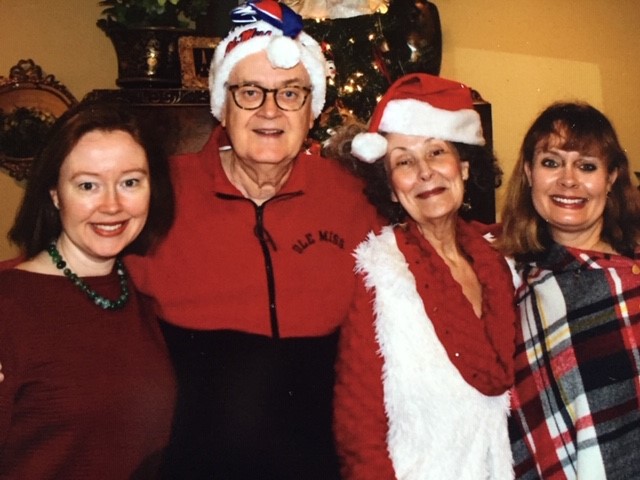
Brown: Tell us about your grandchildren?
Hale: We have four grands. Laura has Anne-Hale and Harrison; Audra has Walt and Charlotte.
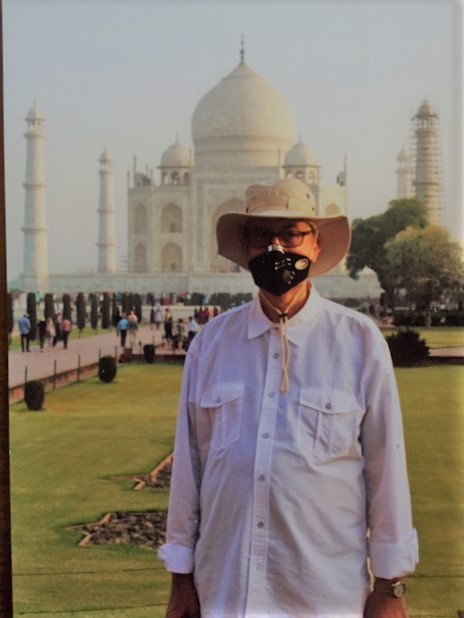
Brown: You and Dot moved to Florida after you retired. Tell us about that decision.
Hale: When we retired, we both had allergies and didn’t seem to have them when we visited Florida. With my impeccable financial timing, we signed a contract to build our dream retirement home right at the peak of the housing boom in Florida. It took two years to build and when it was finished, the bottom had dropped out of the housing market. It was worth about half of what we had spent on it. After a short while, we missed Oxford terribly. When we came back for a visit, two of our friends, Jim Butler and Jesse Phillips, told us it was time for us to move back. We thought O. K. and we put our house up for sale. But after a year we had had no interest, so we decided to move back anyway. We found a good price on a house we loved in Wellsgate and have enjoyed being back for nine years now.
Brown: What did you do on your last vacation?
Hale: On our last vacation, we flew to Cape Town, South Africa and stayed for four days in a tented lodge in a game preserve where we went on twice-daily safaris. We then boarded a cruise ship in Cape Town for a 30-day cruise around southern Africa and across the Indian Ocean, stopping at places like the Maldives, Seychelles, Reunion Island, Sri Lanka, Muscat, etc. We flew back from Dubai, The United Arab Emirates.
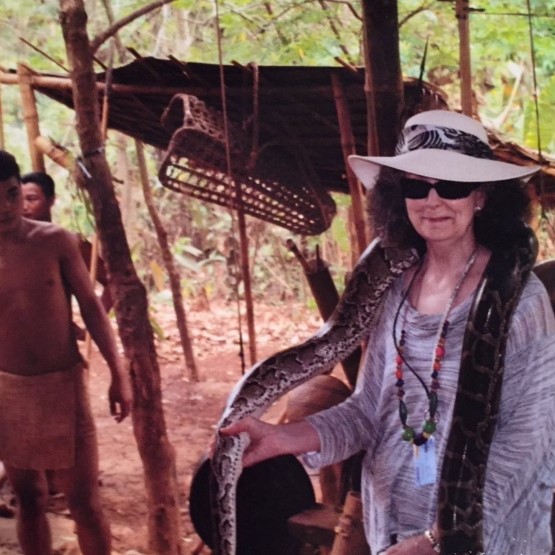

South Africa, February 2020
Brown: I’ve been told that if you visit Dubai, you should carry an empty suitcase so you can shop and fill it up. Did you and Dot shop much in Dubai?
Hale: Dot bought a lovely handmade cashmere shawl.
Brown: Do you have a preferred/favorite cruise line?
Hale: We like Oceania.
Brown: What has been your routine since retirement? Do you have any hobbies?
Hale: I always wanted to travel. Dot and I have had the privilege of going on 37 cruises and visiting 94 countries since retirement.
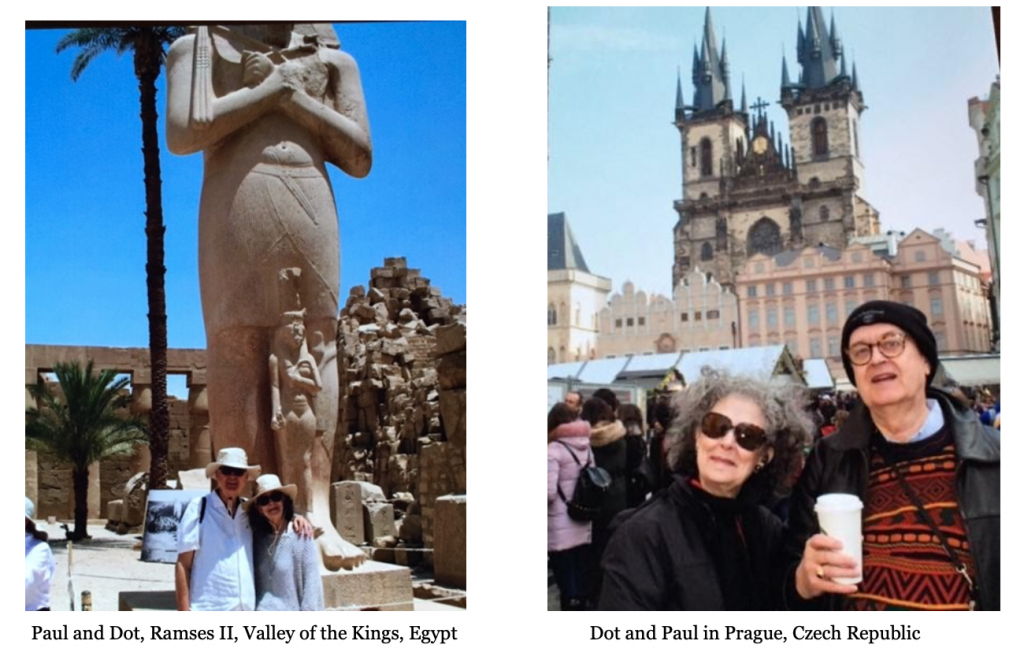


Brown: What’s left on your bucket list?
Hale: We would like to visit six new countries to get to 100. We would also like to visit Machu Picchu and the Galapagos Islands, but they wouldn’t count as new countries since we have already been to Peru and Ecuador.
Brown: How old would you be if you didn’t know how old you are?
Hale: If I didn’t know how old I was, I would be about 50, but I would soon realize I was lying.
Brown: Frank Sinatra said “I would like to be remembered as a man who had a wonderful time living life, a man who had good friends, fine family—and I don’t think I could ask for anything more than that, actually.” What would your quote say?
Hale: I would hope my quote could be as follows: ” He was a good guy.”
Bonnie Brown is a retired staff member of the University of Mississippi. She most recently served as Mentoring Coordinator for the Ole Miss Women’s Council for Philanthropy. For questions or comments, email her at bbrown@olemiss.edu.




























